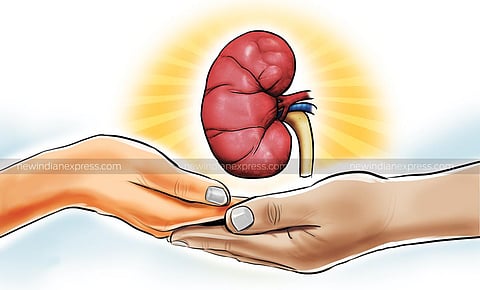

BENGALURU: Nowadays, junk food is available in every nook and cranny, and it’s hard to resist for children and the youth. It is often cautioned that consuming junk food regularly can negatively impact our general health. Now, what’s worrying is that kidney diseases are increasingly rising among children. Diet, especially the consumption of junk food, plays a significant role here.
Excessive salt can harm the kidneys and heart, while excessive sugar can lead to obesity and diabetes.
Consuming too much animal protein can make your blood too acidic, potentially damaging your kidneys. Sedentary lifestyles, common among game-addicted kids and youngsters, can also lead to poor sleep quality and lifestyle diseases.
Other conditions affecting children
Birth defects of the kidney and the urinary tract are among the major causes of kidney diseases in children. Urine blockage or reflux: If the passage of urine is obstructed, the child will not be able to pass urine freely, and urine can flow back into the kidney and cause damage.
Nephrotic syndrome: This condition develops when the filters in the kidney become leaky or damaged, allowing the passage of protein into the urine. This is probably the most important type of kidney disease in children.
Nephritis: This is a condition that occurs when the filters (glomeruli) are inflamed, leading to the retention of water in the body, and the urine can become dark and reddish.
Hereditary diseases: This condition occurs when the parent passes the condition to the children.
Systemic diseases: Some autoimmune diseases can cause kidney disease (lupus erythematosus).
General symptoms
Children in the early stages of kidney disease may not have any symptoms. Mentioned below are some of the symptoms.
Treatment
Depending on the specific condition and its severity, different treatments are available for children with kidney disease.
Medication: Several kidney conditions can be managed with drugs that reduce inflammation, control symptoms, or, in the case of autoimmune disorders, suppress the immune system.
Dietary changes: To manage symptoms and halt the progression of the disease, a controlled diet with limits on sodium, protein, and potassium intake may be required.
Dialysis: Peritoneal dialysis may be required in extreme cases where the kidneys are unable to function properly.
Kidney transplant: For some young patients with advanced kidney disease, a kidney transplant may be the best option.